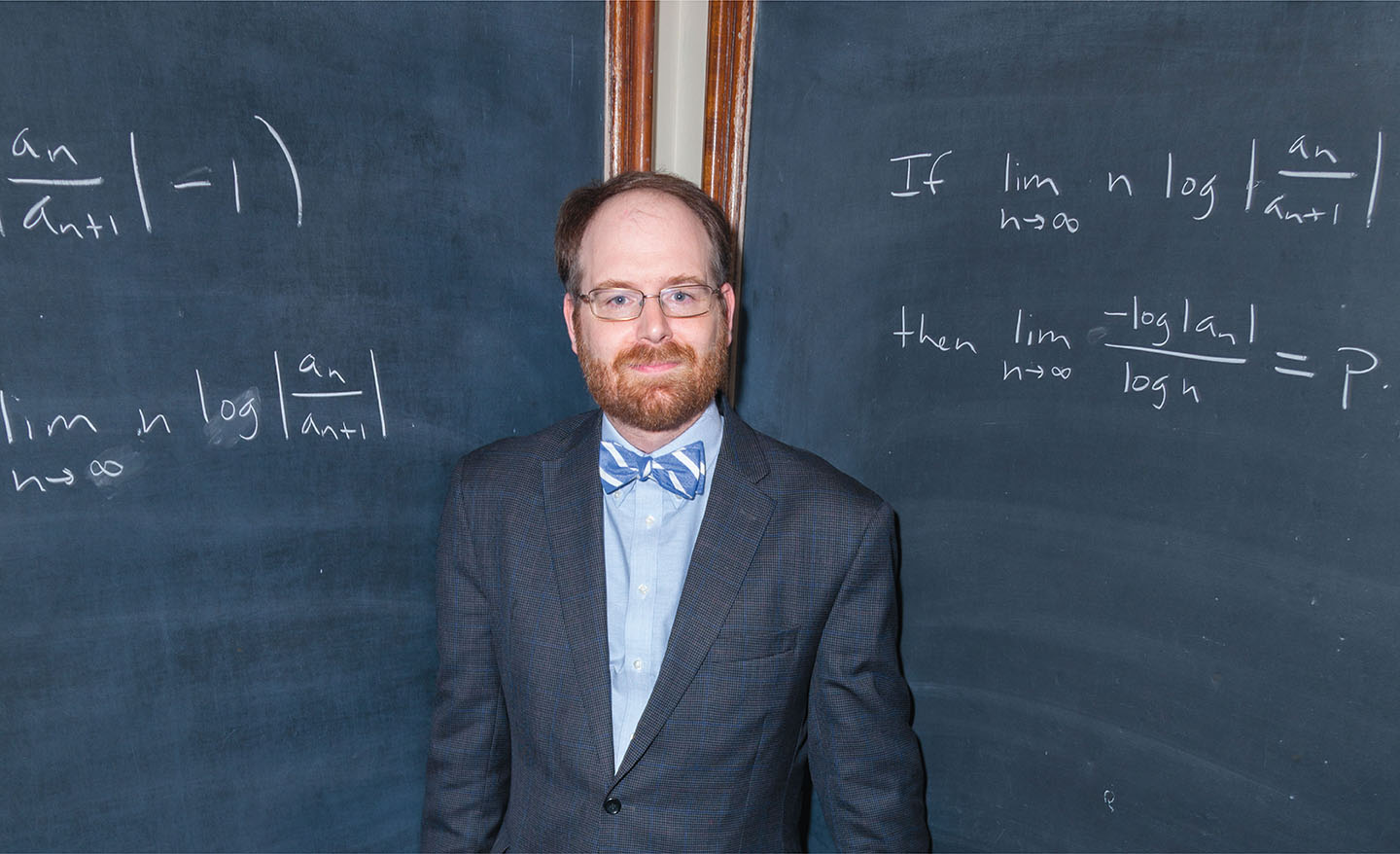Prison Math
Professor Christopher Hammond teaches precalculus at the York Correctional Institution.
GOING TO PRISON is the highlight of Christopher Hammond’s week.
On Monday evenings, the associate professor of mathematics and associate dean of the college for curriculum, leaves his Fanning Hall office and drives to the York Correctional Institute in Niantic, Connecticut’s only correctional facility for women. After passing through various levels of security, he enters a small room, where more than a dozen inmates await his arrival.
For the next three hours, they are his students. They range in age from early 20s to mid-60s, and some of them haven’t taken math in decades. But they are eager to learn.
The students are part of Wesleyan University’s Center for Prison Education program, through which inmates at York and the Cheshire Correctional Institute are invited to take courses accredited by Wesleyan and Middlesex Community College. The students are admitted through a rigorous admissions process—including multiple essays and faculty interviews—and have the opportunity to earn an associate’s degree from Middlesex.
Hammond says he never imagined himself teaching inside a prison. Yet he jumped at the chance in 2014 when he received an email from CPE requesting a math professor in the area who might be willing to teach at York.
“My father’s father was a prison warden in Georgia. I grew up hearing the stories and I think that planted a little seed in my mind,” he said.
Still, Hammond admits that he had no idea what to expect the first time he went to the correctional facility, especially since he had only ever seen the inside of a prison in movies. He also had no idea how the students would react to him; he wondered if they might not take him—or the class—seriously. He needn’t have worried.
“They are so kind and so engaged. Most of them never viewed themselves as going to college, so they take this opportunity very seriously and they are passionate about what they are learning,” he said. “Many are honest that math isn’t their favorite subject, but they work hard at it.”
To complete the associate’s degree, students need to pass Hammond’s precalculus course. But first, he works with cohorts of students for several semesters on the prerequisite mathematics, starting in some cases with what he calls “pre-pre-algebra.”
This summer, six members of his first cohort successfully completed the program and earned associate’s degrees, including Elizabeth Behlman.
“I was your average college student, and I was not,” Behlman said. “Being incarcerated and being in the predicament that I was, so often you are defined by the fact that you are a criminal or that you are a prisoner. This program gave me the opportunity to be defined by something other than the case that put me in York, and that was a great motivator.”
Behlman worked for five years to earn the two-year degree, including four with Hammond.
“I describe myself as a quiet, dorky person, and there was this kinship with him right off the bat,” she said. “You can see he has a love for what he is doing. He is quirky and funny and made jokes in class—just this warm personality with this love for mathematics. And he kept coming back, semester after semester.”
Behlman was recently released from York after serving 11 years for arson. Now, she plans to attend college to study biochemistry.
Hammond hopes more of his students follow in Behlman’s footsteps and eventually pursue bachelor’s degrees. But even if they don’t, he sees great value in the program.
“I hope my course is intellectually enriching, personally enriching and spiritually enriching in a way that will help my students lead more pleasant and meaningful lives,” he said.
“If we are going to be serious about the term ‘correctional facility,’ we need to provide opportunities for these women to better themselves.”
